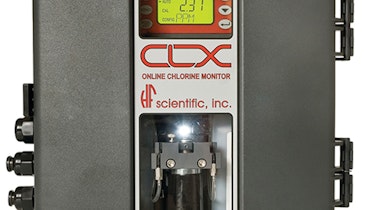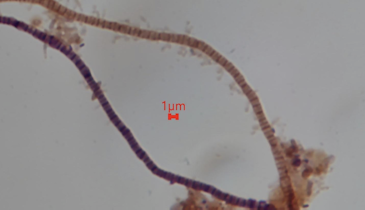
Corey Means, left, chief operator, and Spires look over the equipment in the plant’s oxygen producing area.
“It started out with a good friend of mine” is a common theme on Rodney Spires’ journey. That’s how he got his lab analyst job with the Hannibal (Missouri) Wastewater Treatment Plant, how he joined the Missouri Water Environment Association Laboratory Practices Committee...







